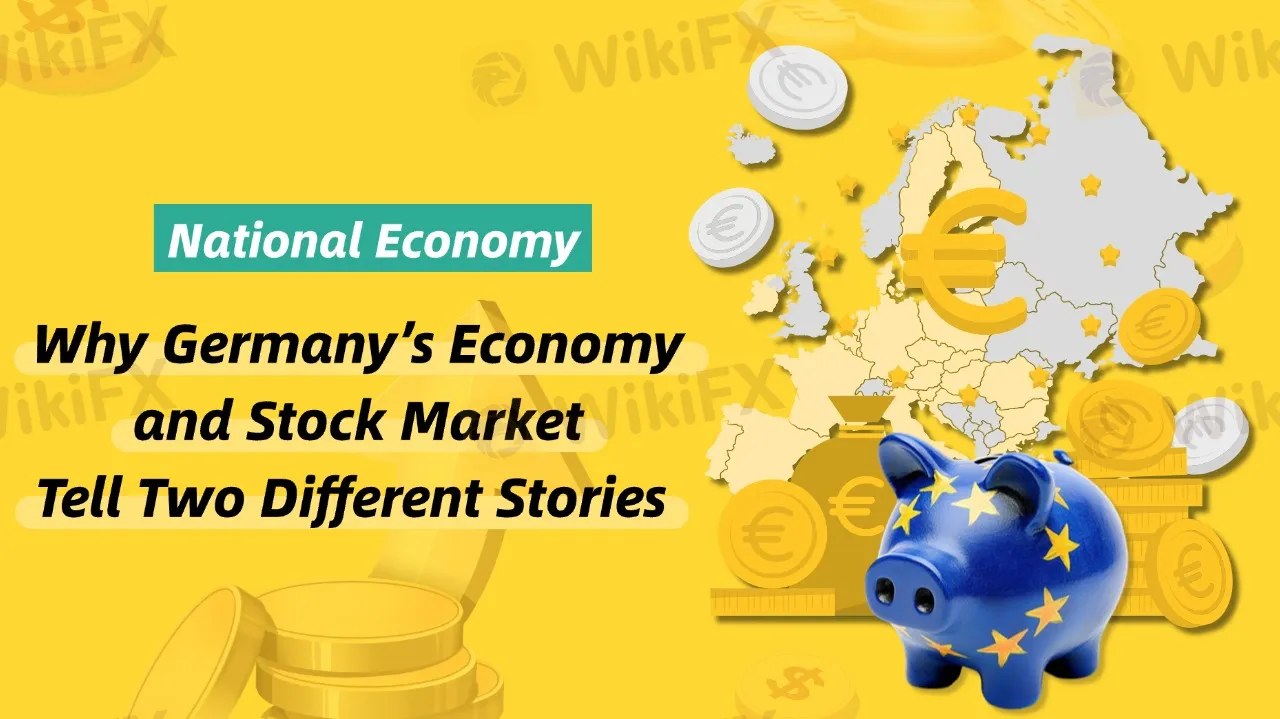Abstract:Germany's economic growth has continued to be sluggish, yet its stock market has remained exceptionally strong, sparking widespread attention. Why do we see a coexistence of economic stagnation and stock market prosperity? In this article, we will delve into the reasons behind this phenomenon and possible strategies for addressing it.

The performance of Germanys stock market, especially the DAX index, has been impressive in recent years, rising by 50% since 2023. The DAX index represents the 30 largest listed companies in Germany. Despite the weak economic growth across Europe, the “Seven Giants” of the DAX—SAP, Deutsche Telekom, Allianz, Siemens Energy, Munich Re, Siemens, and Rheinmetall—have performed exceptionally well, driving the stock market's rise. In 2024, 98% of the DAX's gains came from these seven stocks, with SAP alone contributing 7.8% of the increase.

However, Germany's economic growth has continued to be weak. As Europe‘s economic engine, Germany’s economy has increasingly struggled due to insufficient domestic demand and the impacts of global economic uncertainties. While Germany holds a significant position in exports, particularly in the automotive and high-tech sectors, the lack of domestic consumption and investment has led to a weak GDP growth. In 2023, Germany's GDP growth relied heavily on lower domestic demand, which contributed to its overall economic underperformance.
Divergence Between Stock Market and Economy
The fundamental reason behind the divergence between Germany‘s economy and stock market lies in the difference between the composition of companies in the DAX index and the structure of Germany's domestic economy. Most companies in the DAX index are export-oriented, with 80% of their revenue coming from outside Germany, especially from the U.S. market. This reduces their reliance on domestic demand. In contrast, Germany’s GDP growth primarily depends on domestic demand, which explains the disparity between the two.
Moreover, the sectoral composition of the DAX index differs significantly from that of Germanys GDP. For example, industries such as public services, transportation, real estate, and construction, which contribute significantly to GDP, have a small weight in the DAX index. Over time, the sector structure of the DAX has changed, with a growing proportion of tech companies and emerging industries, while traditional sectors such as automotive and chemicals have seen their weight decrease.
How to Respond?
Faced with this divergence between economic and stock market performance, both investors and the government need to adopt cautious strategies. For investors, understanding the financial health and growth prospects of leading stocks could provide valuable insights for investment decisions.
From a government perspective, boosting domestic demand, particularly in sectors such as public services, transportation, and construction, could help strengthen the resilience of the domestic economy. Additionally, attention should be paid to global and export market trends to minimize risks associated with over-reliance on a single market.











